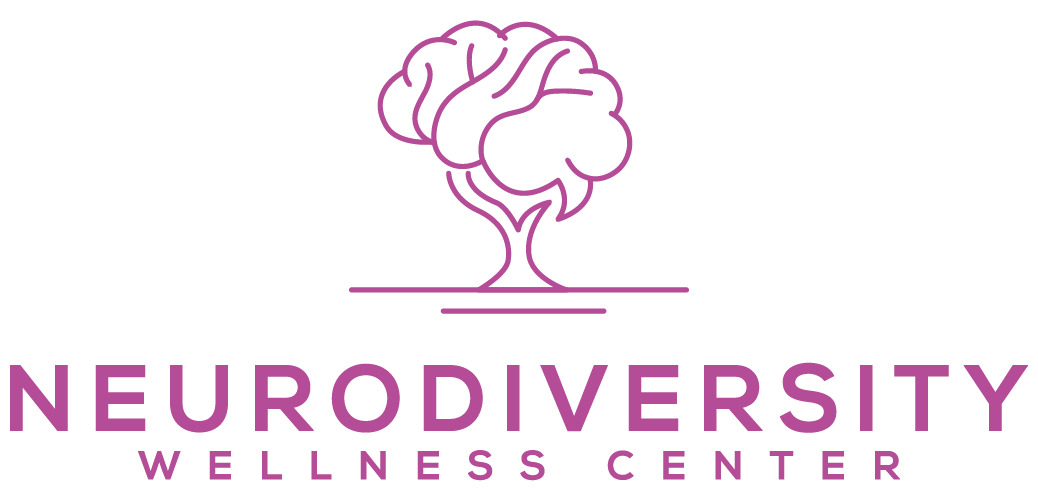Navigating Conflict in Relationships as an Autistic Individual
Dating and Relationship Series
Welcome back to my blog series on dating and relationships for autistic individuals. Last week, we discussed common challenges many autistic people face while dating. Today, I would like to talk about the challenges many autistic adults encounter when they’re in a relationship and experience conflict with their partner. In my experience as an autism therapist, I have noticed that many of my autistic clients struggle to handle conflict in their relationships. This can be caused by a history of bullying, frequent misunderstandings or invalidation, and other forms of interpersonal trauma.
Dating is Hard When You’re Autistic
and Have Trauma from Bad Relationships
 Many of my clients have been in rocky or abusive relationships, understandably leading to low self-esteem and relational trauma. Without support and healing, this usually will impact their present or future relationships.
Many of my clients have been in rocky or abusive relationships, understandably leading to low self-esteem and relational trauma. Without support and healing, this usually will impact their present or future relationships.
As a result, they may experience the following in relationships:
- Being easily triggered by misunderstandings
- Avoidance of conflict or difficult conversations
- Feeling broken or like everything is their fault
- Changing who they are to please their partner
- Feeling numb or detached
- Over-apologizing or apologizing when they’re not at fault
- Feeling the need to be the caretaker
- Trying to fix and solve all issues
- Helplessness or feeling incompetent when unable to support their partner
- Confusion over what to say or do
Social Trauma and Its Effect on Dating for Autistic Individuals
Many autistic individuals have experienced interpersonal trauma. This could stem from bullying, shunning, teasing, or emotional abuse. One systematic review of the research found that up to 83% of children on the spectrum experience peer or sibling victimization, including relational aggression, intimidation, and cyberbullying (Hellström, 2019).
At a societal and systemic level, autistic people experience trauma. Because of the societal bias favoring neurotypical norms, autistic individuals are often misunderstood, unfairly criticized, and ostracized for their differences. These are forms of discrimination and can cause neurominority stress and systemic trauma. Everyday, autistic individuals receive messages that they are inferior, wrong, and broken for not being neurotypical. If they don’t conform to social norms, they risk social rejection and abandonment.
Alarmingly, a significant majority of autistic individuals report experiencing trauma related to sexual assault, rape, or violence. It’s estimated that over 70% of autistic adults have experienced physical or sexual assault. The perpetrators of these aggressive acts could be friends, classmates, teachers, family members, and even parents, leading to betrayal trauma. Cisgender women and gender minorities are at an even higher risk of such interpersonal trauma.
Traumatic experiences can profoundly affect an autistic individual’s sense of safety in relationships. Therefore, many autistic adults struggle to handle conflict or disagreements with their partners because they see it as threatening or aggressive. When in conflict, an autistic person may feel emotionally or physically threatened and do one of four things: fight, flight, freeze, or fawn (appease the other person). These reactions are understandable. It’s hard to feel safe and accepted after so much trauma. But trust is the cornerstone of a healthy relationship. Therapy can help you manage trauma triggers during conflict and engage in healthy communication to develop safe, nurturing relationships.
Experiencing Conflict When You’re Autistic Can Be Challenging
 If you’re autistic, you may have experienced conflict in a relationship that has left you feeling confused and devastated. In my clinical experience, autistic adults who encounter conflict in relationships often resort to avoiding it altogether, over-apologizing and people-pleasing, or trying to fix everything.
If you’re autistic, you may have experienced conflict in a relationship that has left you feeling confused and devastated. In my clinical experience, autistic adults who encounter conflict in relationships often resort to avoiding it altogether, over-apologizing and people-pleasing, or trying to fix everything.
Avoidance
When dating as an autistic individual, a common reaction to conflict, especially if trauma is involved, is to avoid the situation entirely. This might manifest as leaving the conversation, freezing up, not being able to speak, or dissociating. This avoidance often happens unconsciously and is a response to feeling threatened or overwhelmed. You may experience feelings of emptiness and numbness, particularly if you’re unsure why the conflict occurred. This can further lead to feelings of incompetence or inadequacy, as you might struggle to support your partner or meet their needs. In such cases, it may feel easier to withdraw, avoiding further confrontation or the risk of disappointing your partner.
Over-Apologizing
Over-apologizing is a frequent response to trauma for autistic individuals navigating relationships. Many people on the autism spectrum may internalize the belief that they are always at fault, especially because the world around them may frequently give them this message. This may lead them to apologize excessively. They may apologize more times than is necessary or when something is not their fault. Again, this constant apologizing is often a reaction rooted in past social trauma, such as experiences of being dismissed or unfairly blamed for misunderstandings. Recognizing this pattern of people-pleasing and understanding its origins can help you address it more effectively and build healthier communication habits in your relationships.
Fixing Without Listening
Another common reaction to conflict is the impulse to fix the problem immediately without fully understanding it or listening to your partner. For many autistic individuals, their strength is in analyzing and solving problems. However, jumping to problem-solving can be counterproductive in relationships, as it may lead your partner to feel invalidated or unheard. When your partner is upset, they often need you to listen and truly hear their concerns, and not try to immediately fix them. By focusing solely on solving the problem, you might unintentionally make things worse by not addressing their emotional needs. Taking the time to listen and understand their perspective is crucial for resolving conflict effectively and maintaining a healthy relationship.
Strategies for Handling Conflict When You’re Autistic
Learning Your Triggers
Handling conflict effectively when you’re autistic involves several key strategies. First, it’s essential to identify what types of situations or behaviors trigger you during conflict. For example, you might realize that you get triggered during conflict when your partner raises their voice or starts to talk faster. You might experience this as overwhelming and threatening. By understanding these triggers, you can better manage your reactions and apply coping techniques that help you stay calm and engage more constructively with your partner. Awareness of your triggers allows you to prepare in advance and navigate conflicts with greater ease.
Self-Disclosing Your Triggers to Your Partner
Communicating your triggers to your partner is also crucial. It’s important to do this type of self-disclosure when both you and your partner are feeling calm and open to understanding one another. Sharing what makes things harder and easier during a conflict can help your partner to support you better when conflict arises. For instance, you might share that it is hard for you to process information when a person raises their voice or speaks faster. You might request that during a conflict or disagreement, that you both speak slower and in softer voices or take a break so you can regulate your body.
Emotion Regulation and Open Communication Reduces Misunderstandings
Learning emotion regulation techniques is essential to help you stay grounded during conflict. For instance, you might learn emotion regulation strategies such as breathing techniques, using intentional pauses of 15 seconds after each partner speaks, or taking breaks to self-soothe before continuing the conversation. Neuro-friendly self-soothing strategies could also include autistic stimming or softening sensory input, like lowering the light or not making eye contact during the conflict by sitting back-to-back.
When you openly share what will help you to stay regulated and communicative during disagreements, both you and your partner benefit. This transparency helps reduce emotional overwhelm and misunderstandings, and fosters a more empathetic environment for resolving conflicts. Keep in mind that your partner is human, and they may find it hard to regulate themselves during conflict, too. Often individual therapy or couples counseling can be helpful in teaching both partners strategies to stay regulated and communicate effectively during conflict, fostering respect and connection in your relationship.
Instead of Over-Apologizing, Acknowledge Your Partner’s Feelings
If you find yourself over-apologizing, take a moment to evaluate whether an apology is truly warranted. Start by listening to your partner’s feelings and thoughts without immediately defending yourself. This process requires skill and practice but is vital for effective communication.
Instead of apologizing right away, focus on validating your partner’s feelings. Acknowledge their emotions and understand why they might feel a certain way, even if you don’t agree with their interpretation. You might say to your partner, “I hear you. I see you feel… (sad, mad, embarrassed etc). I understand that you thought I was… (being rude, ignoring your feelings, etc). Validating their feelings and expressing that you understand their perspective can prevent further misunderstandings and show that you respect their emotions.
Listening and expressing understanding of your partner’s experience does not mean you agree with their perspective. In fact, you might completely disagree with their interpretation of you. However, when you listen and express understanding of their inner experience, your partner will likely relax and feel more open to you. At that point, it can be easier for them to understand your perspective and intentions.
Lastly, avoid reinforcing misunderstandings by apologizing automatically. When your intention was not to cause harm, over-apologizing can perpetuate incorrect assumptions and lead to confusion and self-doubt. By addressing conflicts thoughtfully and understanding your partner’s perspective, you can enhance communication and build healthier relationships.
If You’re Having Lots of Conflict in Your Relationship Consider Therapy
If you’re experiencing frequent conflict in your relationship while dating as an autistic individual, therapy can be a valuable resource. Whether you choose individual autism therapy, group therapy, couples therapy, or a combination of these, a neuro-affirming therapist can provide valuable insights into your specific challenges and triggers. Therapy can help you develop new coping strategies to manage distress and improve communication. You’ll learn techniques for listening to and validating your partner’s feelings, regulating your own emotions during conflicts, and co-regulating with your partner to create a supportive and soothing dynamic.
 How to Talk to Your Partner About Seeking Therapy
How to Talk to Your Partner About Seeking Therapy
Addressing relationship issues and suggesting therapy can be challenging, whether you’re dating as an autistic individual or not. Here are some strategies to help you navigate this conversation with your partner. Start by asking your partner about their needs and perceptions of the relationship issues. This shows that you value their perspective and opens the door for mutual understanding. Share your own thoughts and feelings to ensure both of you feel heard and accepted. For instance, if your partner expresses discomfort with you walking away during conflicts, explain that you might do this because you feel overwhelmed and need to retreat to manage your emotions. Clarify that this isn’t about abandoning them but rather about managing your own distress.
Communicate to your partner that their feelings and opinions matter to you, and express your willingness to work on these issues. Propose individual counseling for yourself to address personal challenges, such as past trauma, but also suggest couples therapy as a way to improve understanding and resolve conflicts with the support of a trained therapist. Explain that couples therapy can provide insights into each other’s perspectives, and help both of you navigate relationship challenges more effectively. Finally, ask if they would be open to exploring therapy together to enhance your relationship and mutual support.
Narcissistic and Abusive Partners
It’s also important to realize that some people do not care about the wellbeing of their partner. Their goal is to intentionally cause harm to their partner by tearing them down through emotional abuse or physical violence. These types of partners are often considered narcissistic or abusive, trying to manipulate, control and exploit their autistic partner. Couples counseling may not be effective in these types of relationships because the abuser may not wish to change.
As an autistic person, it can be hard to distinguish between a narcissistic or abusive partner from a partner who genuinely cares but is misguided. Unfortunately, well-meaning partners can cause unintentional harm by making incorrect assumptions, such as by misinterpreting their autistic partner as cold or rude. These misunderstandings can lead to serious harm and often trauma, but it’s not intentional. Deep down, both partners want a positive relationship and care about the wellbeing of each other. These are the sorts of partners who may benefit from couple’s counseling.
Autism Therapy in California
At our autism therapy clinic in Palo Alto, CA, we provide individual counseling for autistic adults to work through relational trauma and better navigate relationships. Our therapists are also skilled in working with neurotypical partners who want to better understand how to support their neurodiverse relationship. Our therapy groups are also a great way for neurodivergent folks to explore relationship issues and be affirmed by neurodivergent group members who get them at a deeper level.
Online Autism Group Services at Neurodiversity Wellness Center include:
- Neurodivergent Working Professionals Group
- Neurodivergent Women’s Group
- Neurodivergent College Group
- Neurodivergent Young Adults Group (Post-College)
All our services are available online to ensure accessibility.
Begin Autism Therapy and Learn More about Dating as a Person on the Autism Spectrum
I specialize in supporting neurodivergent teens and young adults through individual and group therapy, helping them thrive in various aspects of life, including dating and relationships. If you’re seeking assistance with issues like dating or other challenges, I would be happy to connect with you. To start autism therapy in California, follow these steps:
Contact Neurodiversity Wellness Center to schedule a free 30-minute phone consultation.
Sign up for our newsletter to receive updates.
Autism Therapy Services at Neurodiversity Wellness Center
At Neurodiversity Wellness Center, located in the South Bay Area, we specialize in providing comprehensive autism therapy services for teens and adults. Our focus is on supporting individuals who identify as neurodivergent, including those with an autism diagnosis, autistic traits, undiagnosed autism, or who are self-diagnosed, as well as their families. Currently, we offer all our autism counseling services online, ensuring accessibility and convenience for our clients. Our dedicated team of autism therapists provides a range of tailored services, including individual therapy, parent counseling, and group therapy. Our therapy groups cater to various needs, such as neurodivergent working professionals, college students with autistic traits, gifted youth and their caregivers, autistic adults, and women who identify as neurodivergent.
For more detailed information about our services or to schedule a consultation, please contact our autism therapy office. We are committed to providing compassionate and effective support to enhance your well-being and promote personal growth.
 About the Author
About the Author
Dr. Tasha Oswald is a developmental and clinical psychologist with extensive training and experience. She is the founder and director of Neurodiversity Wellness Center, a private practice located in the South Bay Area, near San Francisco, CA, that specializes in autism therapy services. Dr. Oswald is dedicated to supporting neurodivergent teens and adults and is experienced in facilitating therapy groups tailored to supporting their unique needs.




